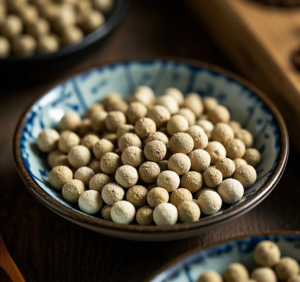Physical Address
304 North Cardinal St.
Dorchester Center, MA 02124
Physical Address
304 North Cardinal St.
Dorchester Center, MA 02124
When it comes to seasoning your dishes, both white pepper and black pepper are essential spices that add a unique flavor to your meals. While they may seem similar at first glance, there are notable differences between the two that can impact your cooking and the overall taste of your dishes. In this article, we’ll explore the distinctions between white pepper and black pepper, their origins, flavors, uses, and how they can elevate your culinary creations.

Origins and Processing
Both white pepper and black pepper come from the same plant, Piper nigrum, a tropical vine native to South India. However, the differences lie in how the peppercorns are processed after harvesting.
Flavor and Aroma
The flavor profiles of white pepper and black pepper differ significantly, making them suitable for different types of dishes.
Culinary Uses
The choice between white pepper and black pepper often comes down to the dish you’re preparing and the desired flavor profile.
Nutritional Differences
While both white pepper and black pepper are low in calories and fat, they do have some nutritional differences.
Aesthetic Considerations
One of the key differences between white pepper and black pepper is their appearance. Black pepper adds a speckled, rustic look to dishes, while white pepper blends seamlessly into lighter-colored dishes, giving them a cleaner, more polished appearance. This makes white pepper a popular choice for chefs who want to enhance the flavor of a dish without altering its visual appeal.
Storage and Shelf Life
Both white pepper and black pepper should be stored in a cool, dry place to maintain their flavor and aroma. Whole peppercorns have a longer shelf life than ground pepper, as they retain their oils and essential oils better. Ground pepper should be used within a few months to ensure optimal freshness.
Conclusion
In summary, white pepper and black pepper are both valuable spices with unique characteristics that make them indispensable in the kitchen. Black pepper is known for its bold, pungent flavor and is a versatile addition to a wide range of dishes. White pepper, with its milder, sweeter taste, is ideal for lighter dishes and those where a subtle flavor is desired.
Whether you’re seasoning a hearty roast or preparing a delicate sauce, choosing the right pepper can elevate your dish to new heights. So, the next time you’re cooking, consider the flavor profile and visual impact you want to achieve, and let white pepper or black pepper be your guide to creating delicious and visually appealing meals.